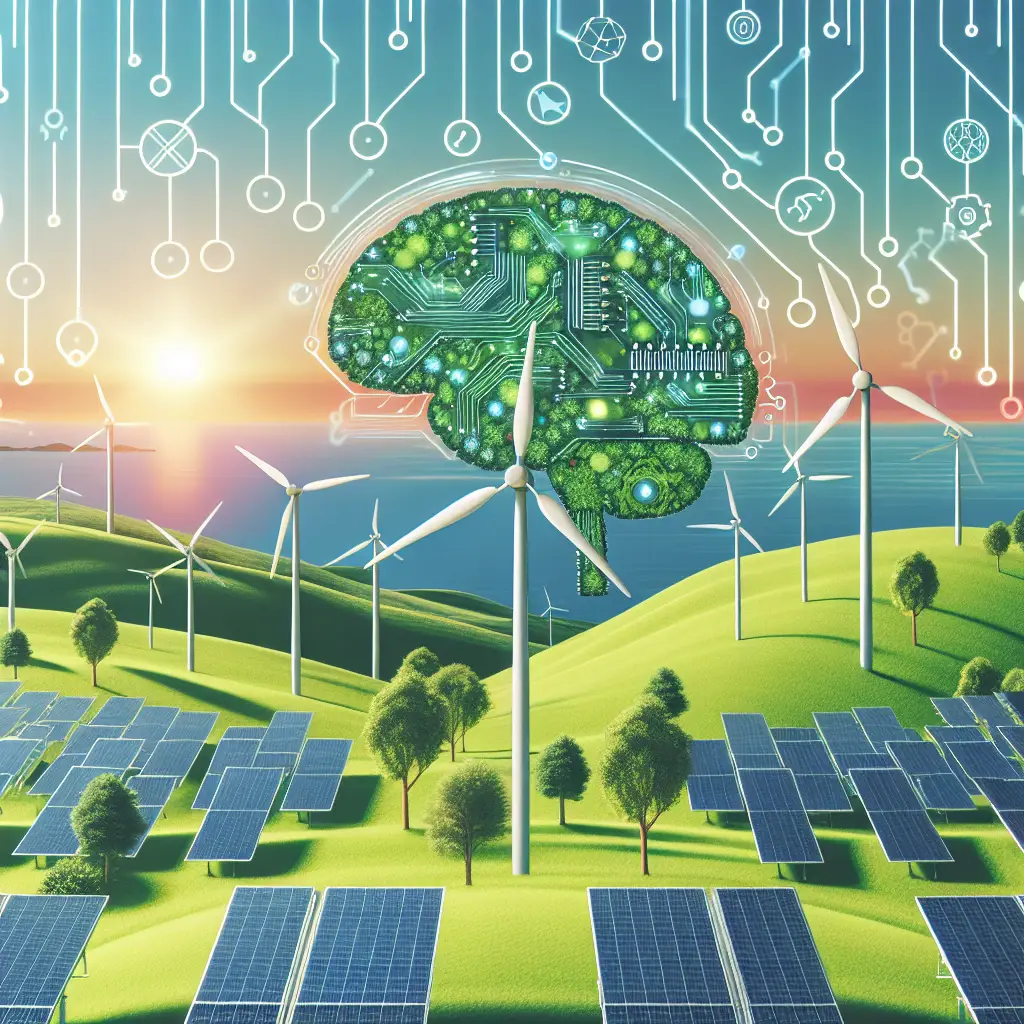Artificial Intelligence (AI) has come a long way in the past few decades, transcending areas we never thought it could. As the world grapples with various development challenges, AI’s potential to aid in sustainable development has become increasingly apparent. It presents vast opportunities for fostering economic growth, improving education and health outcomes, mitigating climate change, and promoting social equity.
The United Nations’ Sustainable Development Goals (SDGs) aim to address global issues like poverty, inequality, and environmental degradation. Numerous initiatives focus on employing AI technologies, tools, and techniques towards achieving these goals to shape a prosperous, sustainable future.
AI for Economic Growth
Traditionally, economic growth has relied on industrialization and intensification of resource use. However, for sustainable development, there is a need to decouple economic growth from resource consumption and environmental degradation.
In this context, AI comes into play with its ability to improve productivity and efficiency. Predictive analytics help businesses forecast demand and optimize resource allocation, reducing waste. It aids in automating repetitive tasks, freeing up human resources for more strategic, value-additive roles. Furthermore, AI techniques like machine learning and natural language processing enable new business models, driving innovation-led growth.
Consider the example of autonomous vehicles. They promise to redefine transportation, reducing the need for personal car ownership. These AI-powered vehicles can operate round the clock, reducing idle time and the number of cars needed – leading to significant resource efficiency.
AI in Education
Education is the cornerstone of sustainable development, enabling individuals to contribute to society’s economic, social, and environmental wellbeing. AI presents a major opportunity for making quality education accessible and personalized.
AI-powered learning platforms can provide customized learning experiences, adapting to each student’s learning pace and style. With AI’s help, we can analyze vast amounts of data on student performance, providing insights to improve teaching methodologies and curricula.
Moreover, AI can make education more inclusive. For instance, speech recognition technologies enable learning for the hearing impaired, while AI-powered tools can aid visually impaired students with functionalities like reading aloud text or describing visual content.
AI and Health Outcomes
AI is revolutionizing healthcare, with a potential significant impact on sustainable development. AI can aid in diagnosis, treatment, and prognosis of diseases. Predictive analytics can forecast disease outbreaks, enabling preventative measures. Personalized medicine can be facilitated, tailoring treatments based on individual genetic profiles.
Furthermore, AI can bring healthcare to resource-limited settings. Telemedicine facilitates remote healthcare service delivery, aided by AI tools like chatbots for initial diagnosis or symptom analysis. With AI, we can monitor health indicators in real-time, intervene early, and provide better care for chronic conditions.
AI for Climate Change Mitigation
Climate change is one of the major challenges to sustainable development. AI offers powerful tools to monitor and mitigate its impact. Machine learning algorithms can analyze vast amounts of climate data, improving our understanding and prediction of climate phenomena.
Consider the application of AI in smart grids. They optimize energy generation and distribution, significantly enhancing energy efficiency. Autonomous electric vehicles, powered by AI, can further reduce carbon emissions. AI can also aid in developing renewable energy sources by predicting energy output based on weather patterns, optimizing its use.
AI for Social Equity
Lastly, AI can help promote social equity – a critical aspect of sustainable development. AI-enabled analysis of social data can help identify patterns of discrimination or inequality. It can also provide policy recommendations to rectify these issues.
However, it requires careful implementation. If not properly regulated, AI can inadvertently perpetuate biases in its algorithms. Therefore, ensuring transparency, accountability, and inclusiveness in AI development is crucial.
Challenges and Way Forward
Although AI offers immense potential for sustainable development, realizing that potential involves addressing various challenges. These include ensuring access to AI technology across diverse socio-economic contexts, managing privacy issues, and mitigating the risk of job displacement due to automation.
Moreover, there’s an urgent need for a policy framework. It should guide AI’s development and deployment, ensuring it aligns with sustainability objectives, benefits are equitably distributed, and societal risks are managed.
Creating such a future will require collaborative efforts from governments, businesses, academia, civil society, and AI practitioners. Together, they can harness AI’s power to foster sustainable development and build a future that is prosperous and equitable – for all.
Share this content:

